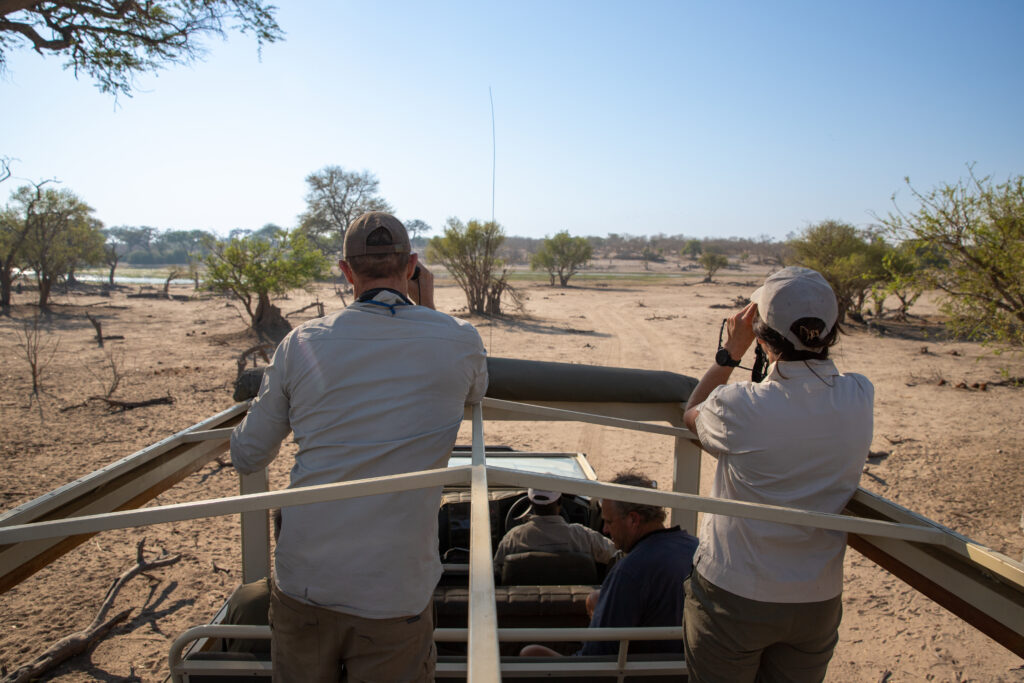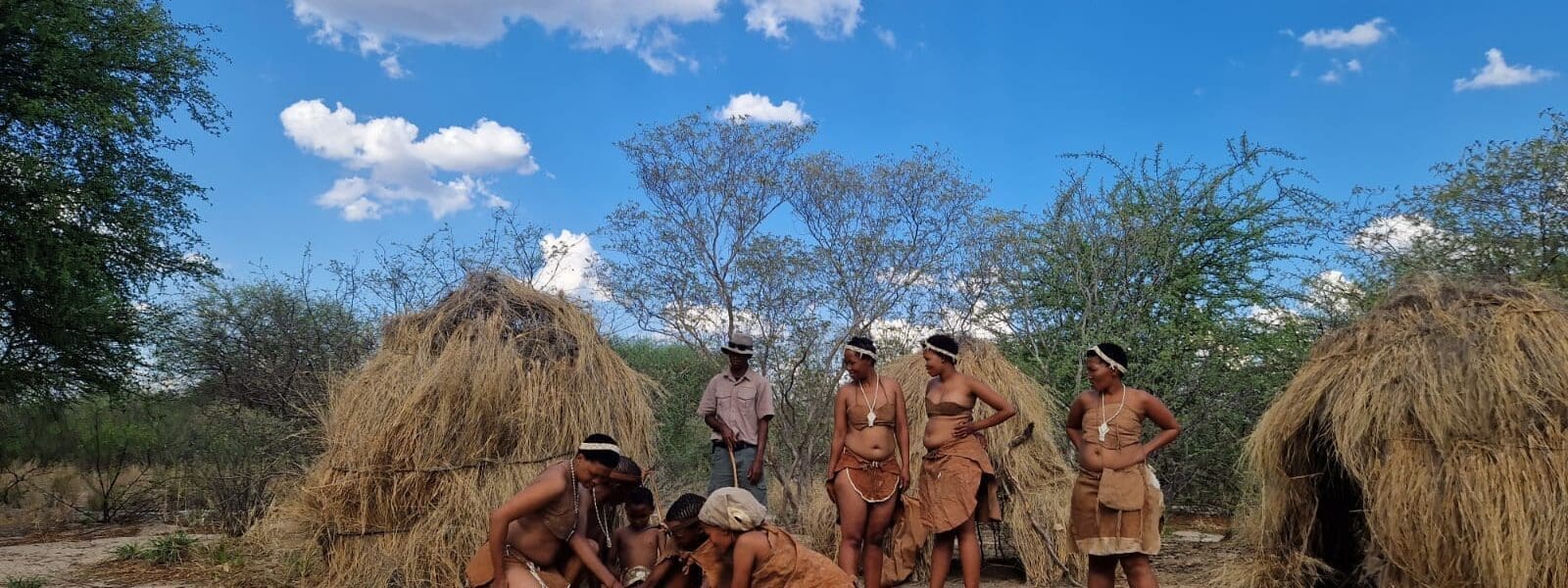Discovering Makgadikgadi National Park
Embark on an extraordinary journey to Makgadikgadi National Park in Botswana, a place so surreal it feels like stepping onto another world. This vast and mesmerizing expanse lies at the heart of the Kalahari Desert and is home to the largest salt pans on the planet. A visit here promises an unforgettable adventure, combining dramatic landscapes and awe-inspiring encounters with wildlife.
Makgadikgadi National Park is renowned for its sprawling, flat salt pans that extend endlessly toward the horizon. In the dry season, these pans develop intricate cracks, creating patterns that resemble the lunar surface. When the rains arrive, the pans transform into a shallow lake, attracting flocks of flamingos and other water birds, their vibrant presence contrasting with the stark, empty surroundings. This seasonal change from desolation to vibrancy is a spectacle unique to Makgadikgadi.
Kubu Island: A Granite Oasis Amid the Salt Flats
Kubu Island, a striking granite formation, rises from the Sua Pan like a natural fortress in a sea of salt. Adorned with ancient baobab trees, this rocky outcrop serves as a refuge for wildlife and offers sweeping views over the vast salt flats. Camping overnight on Kubu Island provides a rare opportunity to experience the quiet isolation of the desert while surrounded by its breathtaking beauty.
Here, travelers are invited to camp beneath a starlit sky, experiencing the peace and rugged charm of one of Africa’s most unique landscapes. The island’s granite and baobab trees offer a visually stunning contrast to the endless salt flats, creating an otherworldly environment that feels like a step back in time.
Wildlife in an Unlikely Habitat
Despite the seemingly desolate appearance, Makgadikgadi National Park is far from empty. During the wet season, the pans support a diverse array of wildlife. Meerkats, zebras, and wildebeests graze along the pan’s edges, creating a surreal picture of life thriving against a barren backdrop. Predators, including lions and cheetahs, follow their prey into this unique environment, providing thrilling opportunities for wildlife viewing and photography.
The dry season offers a different experience, with fewer animals yet greater visibility over the stark, moon-like landscape. Visitors during this time can observe meerkats up close, as they are often accustomed to human presence and may approach out of curiosity. The balance of desolation and life in this landscape is a fascinating aspect of Makgadikgadi’s charm.

Quad Biking Adventures and San Cultural Encounters
For adventure enthusiasts, Makgadikgadi offers unique and thrilling activities. Quad bike safaris across the pans provide an exhilarating way to explore the seemingly endless landscape. The silence of the salt flats, combined with the vast space, makes quad biking a truly memorable experience. As you zip across the pans, the play of light and shadow creates a mesmerizing display, with endless reflections and contrasting textures.
A visit to the park isn’t complete without engaging with the local San people, who have called this area home for centuries. Cultural tours offer a fascinating insight into the San’s traditional lifestyle and their deep connection to the land. You can learn about their survival skills, such as tracking animals, finding water in arid regions, and using plants for medicinal purposes. This cultural experience adds depth to any visit, enriching your understanding of this unique environment.
A Night Under the Stars: Celestial Marvels in a Remote Desert
As the sun sets over Makgadikgadi National Park, the salt pans are bathed in a warm, ethereal glow. The setting sun blurs the horizon, blending it into the sky in hues of red, orange, and purple. This remote location, free from artificial light, provides an unparalleled opportunity for stargazing. The vast and unobstructed sky transforms into a shimmering display of stars, offering a profound sense of connection to the cosmos.
Spending a night under this celestial canopy is a highlight for many visitors. With the eerie silence of the pans surrounding you, the experience of stargazing here is both humbling and magical. Whether you’re an astronomy enthusiast or simply in search of a peaceful, awe-inspiring moment, Makgadikgadi’s night skies offer a unique and unforgettable experience.
Practical Tips for Visiting Makgadikgadi National Park
Access to Makgadikgadi National Park is primarily from the towns of Maun or Nata, which serve as entry points to the park. Guided tours and self-drive options are both popular, with several tour operators offering packages that include transportation, camping, and excursions within the park.
If you’re planning to explore independently, it’s essential to come prepared. The pans are remote and can be challenging to navigate, especially for those unfamiliar with desert conditions. Be sure to bring ample water, sun protection, and sturdy footwear, particularly if you intend to explore the salt flats on foot. The desert sun can be intense, and the reflective nature of the pans increases the risk of sunburn.
Visitors are also advised to plan their trip according to the season. The dry season, from May to October, offers a different experience than the rainy season, with unique opportunities and challenges in each.
Makgadikgadi National Park: A Journey Beyond the Ordinary
Makgadikgadi National Park isn’t just a destination; it’s a portal to an otherworldly landscape filled with silence, beauty, and mystery. The sheer emptiness and vastness of the salt pans invite introspection, while the surprising abundance of life reminds us of nature’s resilience. For those seeking an adventure that goes beyond the conventional, Makgadikgadi offers an experience that resonates on a deep, almost spiritual level.
Prepare to be captivated by the park’s ethereal beauty, the timeless allure of the salt pans, and the unique enchantment that Makgadikgadi reveals to those who venture into its embrace. This is a place that defies expectations and stays with you long after you’ve left, leaving an indelible mark on the soul.
Planning a safari to Makgadikgadi National Park
Planning a tour to Makgadikgadi National Park offers an opportunity to explore one of Botswana’s most mesmerizing and remote landscapes. Begin by choosing the best season to visit: the dry season (May to October) unveils vast, cracked salt pans that look like a lunar landscape, while the rainy season (November to March) transforms them into shallow lakes, attracting flocks of flamingos and other wildlife. Access is generally through Maun or Nata, with guided tours available from both locations.
For an immersive experience, consider a multi-day tour that includes camping at iconic spots like Kubu Island. Guided tours often include quad biking across the salt flats, nature walks, and cultural interactions with the local San people, who share insights into desert survival techniques. Stargazing is another highlight, as the park’s isolation provides clear, unobstructed night skies.
Ensure your packing list includes essentials like water, sunscreen, hats, and sturdy shoes. The remoteness of the pans also means preparing for basic facilities, so a well-equipped camping setup is key. Whether you join a guided tour or explore independently, a trip to Makgadikgadi promises unique landscapes, thrilling activities, and unforgettable encounters with nature’s resilience in the heart of Botswana.
If you’re planning a safari to Makgadikgadi National Park, reach out to us, and we’ll help you embark on your unforgettable adventure in Botswana!
What is the best time of year to visit Makgadikgadi National Park?
The best time depends on your interests. The dry season (May to October) offers unique cracked salt pan landscapes and excellent stargazing, while the wet season (November to March) brings migratory birds, including flamingos, and wildlife like zebras.
What wildlife can I expect to see at Makgadikgadi National Park?
The park is home to meerkats, zebras, wildebeests, and occasionally lions and cheetahs. During the rainy season, it attracts large flocks of flamingos and other migratory birds, creating vibrant scenes against the salt pans.
How do I get to Makgadikgadi National Park?
The park can be accessed from the towns of Maun or Nata. Guided tours and self-drive options are available, with many visitors choosing 4×4 vehicles for the sandy and rugged terrain.
What activities are available in Makgadikgadi National Park?
Popular activities include quad biking across the salt pans, stargazing, camping at Kubu Island, and cultural experiences with the local San people, who share insights into traditional desert survival skills.


You must be logged in to post a comment.